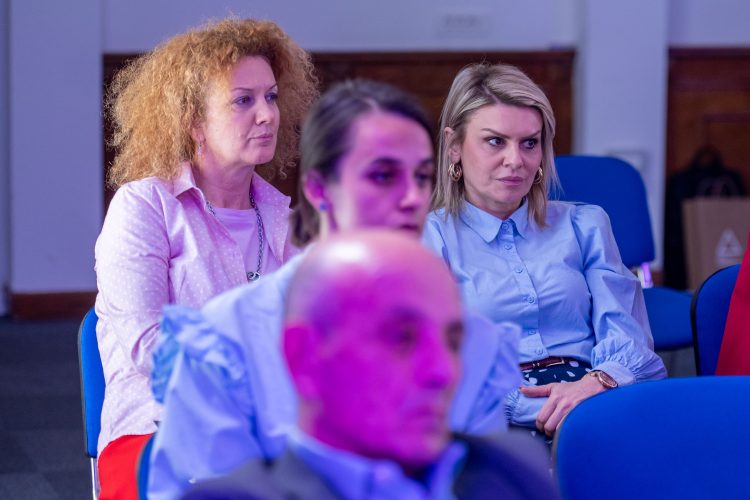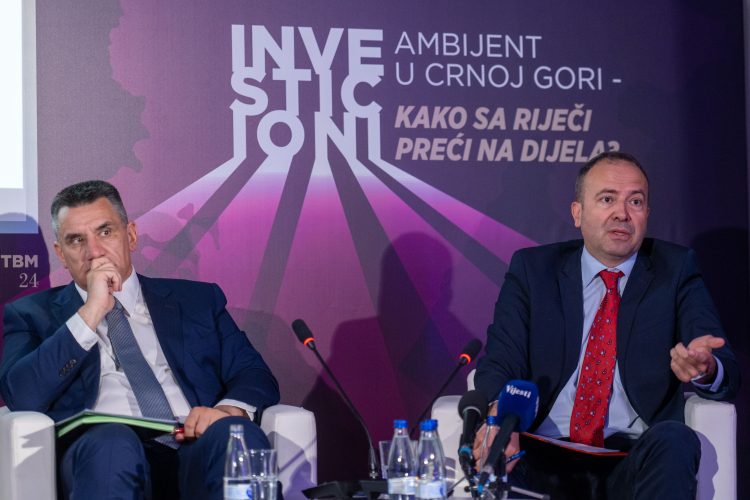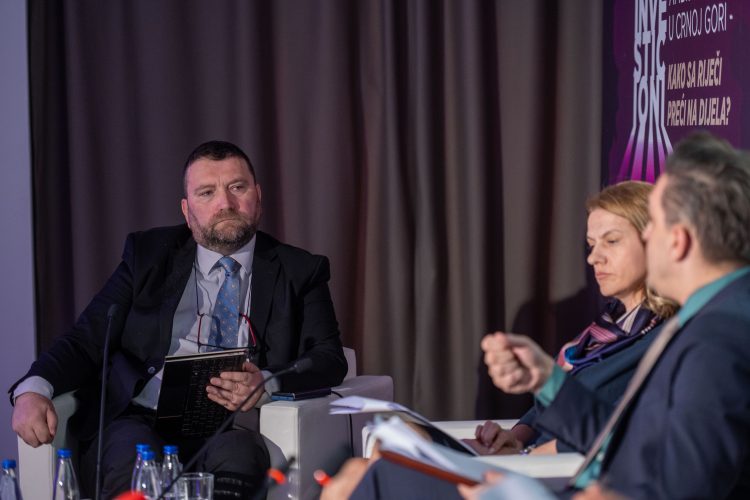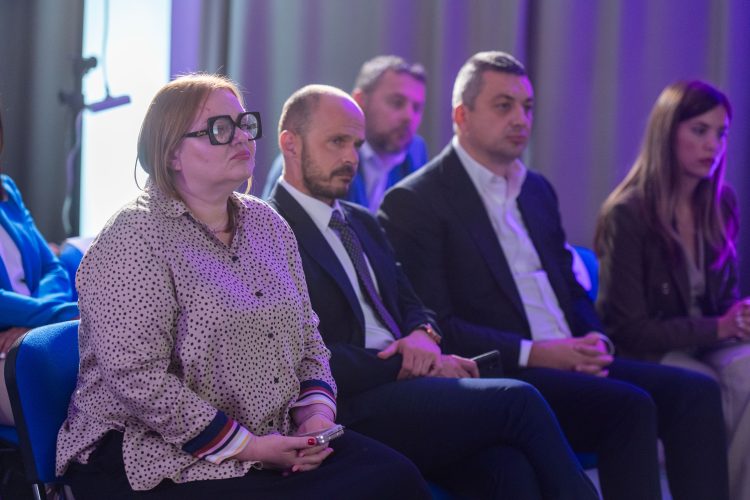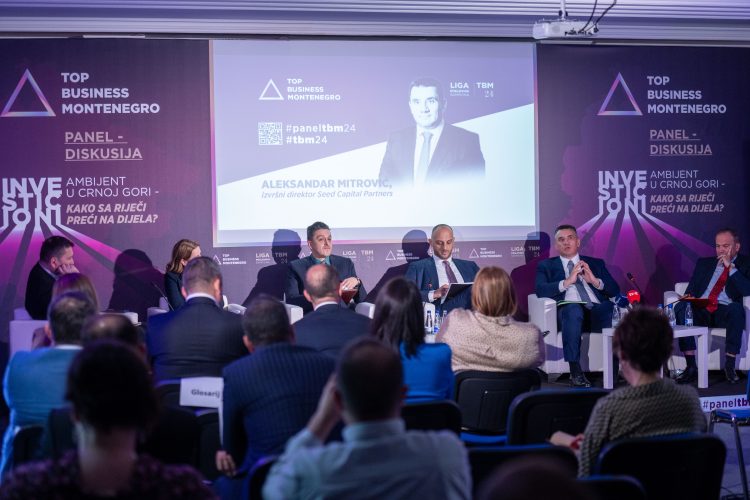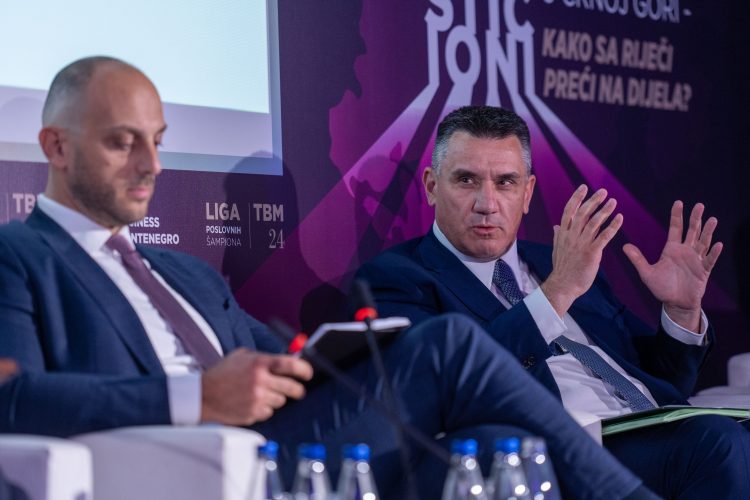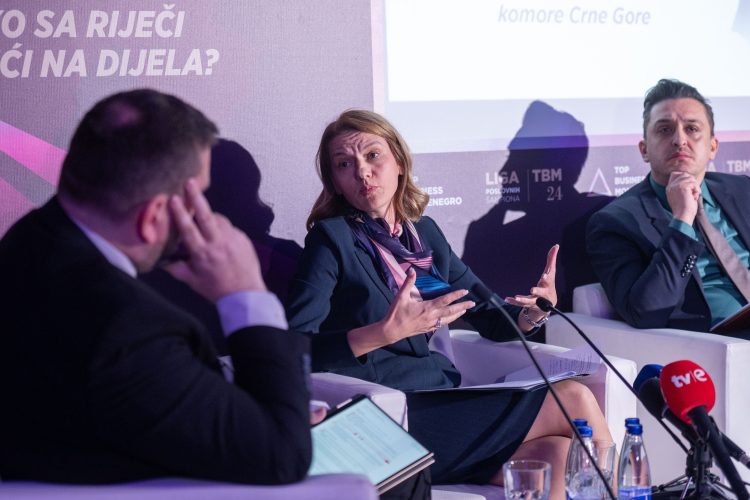The Investment Environment in Montenegro: Attractive with great room for improvement
"The most significant aspect for attracting new investments in this period is to ensure primarily political stability, establish and uphold the rule of law, and enhance the business environment, which must be stable and predictable, especially when it comes to administrative efficiency, tax rates, and transparent decision-making," emphasized Mulešković.
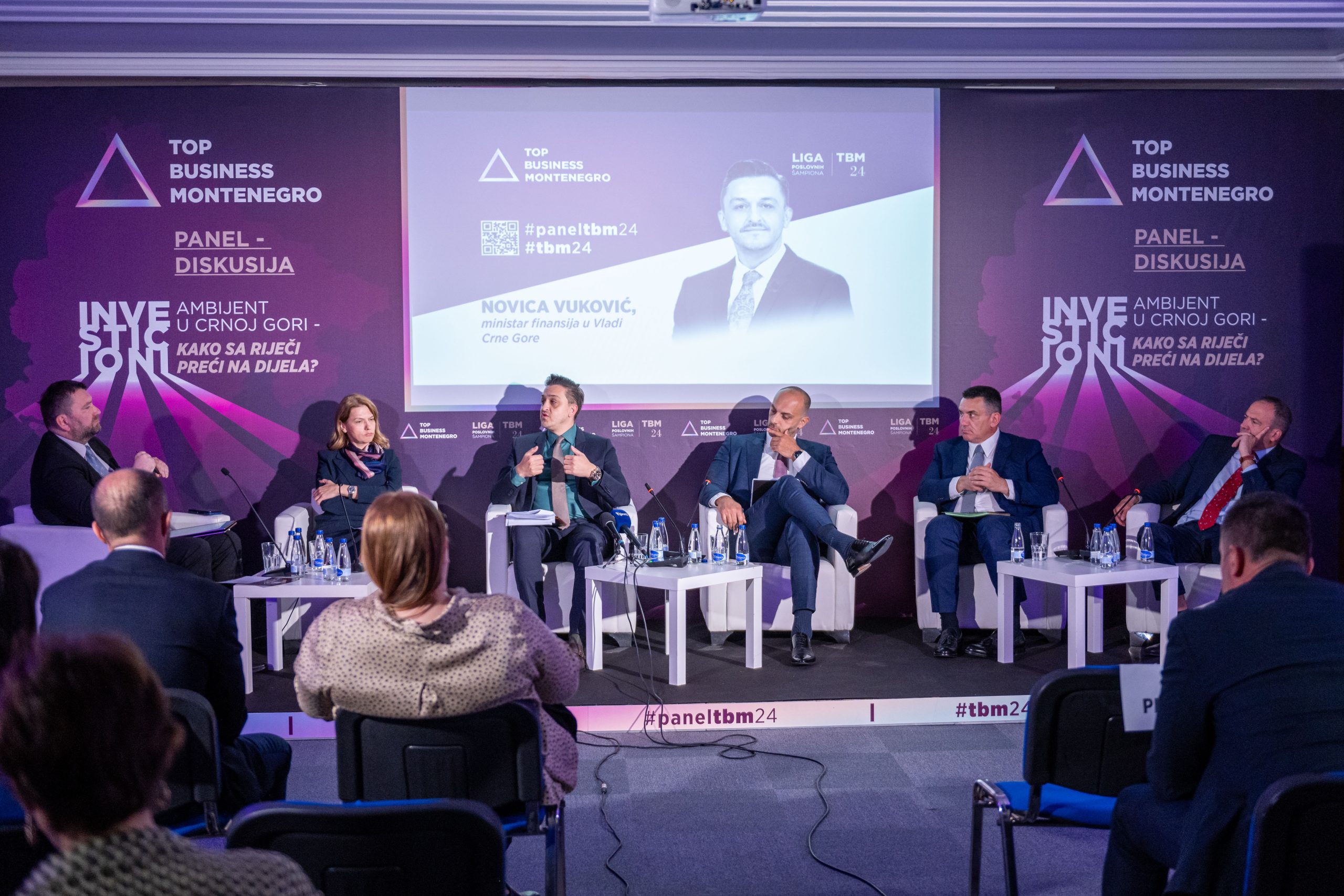
During the panel discussion “Investment Environment in Montenegro – How to move from words to action?” organized within the framework of the Top Business Montenegro 2024 initiative, it was stated that although the general tax policy is stimulative, high costs and barriers after investment still burden the entire economy of Montenegro.
 Ratko Nikolić, founder of BI Consulting and chief analyst of TBM, assessed that we can only speak of Montenegro as an attractive investment destination when we create such an investment environment that will be confirmed by the business community in practice as favorable and which will result not only in better ratings in surveys but also in increased and diversified investments.
Ratko Nikolić, founder of BI Consulting and chief analyst of TBM, assessed that we can only speak of Montenegro as an attractive investment destination when we create such an investment environment that will be confirmed by the business community in practice as favorable and which will result not only in better ratings in surveys but also in increased and diversified investments.
“Such results will be the best invitation for new foreign investors to recognize Montenegro as an interesting investment destination,” said Nikolić.
 According to Mirza Mulešković, an economic analyst who gave the introductory speech at today’s panel, from 2006 to the present, the investment environment in Montenegro has been created to be favorable and attractive for attracting foreign investments.
According to Mirza Mulešković, an economic analyst who gave the introductory speech at today’s panel, from 2006 to the present, the investment environment in Montenegro has been created to be favorable and attractive for attracting foreign investments.
“However, even today, there is a great scope for development within the system itself. The most significant aspect for attracting new investments in this period is to ensure primarily political stability, establish and uphold the rule of law, and enhance the business environment, which must be stable and predictable, especially when it comes to administrative efficiency, tax rates, and transparent decision-making,” Mulešković emphasized.
 Novica Vuković, Minister of Finance in the Government of Montenegro, stated that investors in 2023 sent a clear message that they are interested in the rule of law and an environment that provides them with secure conditions for investments.
Novica Vuković, Minister of Finance in the Government of Montenegro, stated that investors in 2023 sent a clear message that they are interested in the rule of law and an environment that provides them with secure conditions for investments.
“It is necessary to first establish strong institutions. We are in constant contact with everyone in the market and react very quickly. We have activated the Investment Agency, which is like a key account for all interested potential investments,” said Vuković.
He emphasized that the Government, together with the Ministry of Finance, is taking steps to create space for new investment forms that combine the authority of public institutions and the expertise of the private sector, achievable through public-private partnerships.
Vuković also highlighted that the Law on Strategic Investments is being drafted, which is very demanding.
“Through social dialogue, everyone interested will be involved. No law will be enacted without dialogue so that everyone can participate in shaping all policies together,” Vuković emphasized.
 Nina Drakić, President of the Chamber of Economy of Montenegro, pointed out that stimulating private sector investments requires stable political and economic conditions, the rule of law with a high degree of guarantees and protective mechanisms for investors.
Nina Drakić, President of the Chamber of Economy of Montenegro, pointed out that stimulating private sector investments requires stable political and economic conditions, the rule of law with a high degree of guarantees and protective mechanisms for investors.
“It implies that we must have a stimulating business environment, predominantly influenced by the quality of infrastructure, regulatory framework, and administrative efficiency in its implementation. Montenegro has certain incentives, a relatively favorable tax system, especially in terms of labor taxation, but the structure of foreign investments is still not at a satisfactory level,” Drakić said.
She added that for this reason, the main task of future economic policies should be to define priority sectors suitable for foreign investments, such as agricultural production, processing and IT industries, energy, and to create incentive measures and support programs that the state can offer for this purpose.
 Nikola Perišić, member of the Management Board of Crnogorska Komercijalna Banka, responsible for business with legal entities, said that the availability of credit lines of commercial banks in Montenegro, considering the size of the market, is at the level of EU countries.
Nikola Perišić, member of the Management Board of Crnogorska Komercijalna Banka, responsible for business with legal entities, said that the availability of credit lines of commercial banks in Montenegro, considering the size of the market, is at the level of EU countries.
“This is reflected in the terms that banks are able to offer, but also through the possibilities to support projects of various profiles, from all sectors of the economy operating in Montenegro. CKB is largely focused on supporting clients and we seize every opportunity to be part of initiatives that strengthen and improve the Montenegrin economy. In addition to the credit lines we offer, we also provide advisory support to companies to adapt to European business standards, further expand their capacities, and become competitive beyond the borders of Montenegro,” emphasized Perišić.
He emphasized that a clear and predictable regulatory-legal framework in Montenegro, which takes into account the suggestions of banks, the business community, and all those who want to compete in the market while fully respecting all rules, simply dictates the pace, development, and expansion of opportunities for even greater support to the economy by commercial banks.
 Aleksandar Mitrović, Executive Director of Seed Capital Partners, said that the Cable Car “Kotor-Lovćen” is additional confirmation of the broader positive impact that capital projects of this type have on our entire economy and society.
Aleksandar Mitrović, Executive Director of Seed Capital Partners, said that the Cable Car “Kotor-Lovćen” is additional confirmation of the broader positive impact that capital projects of this type have on our entire economy and society.
“I believe that a strong partnership between investors and decision-makers is crucial to, based on previous experience, create models for the substantial removal of recognized business barriers that stand in the way of fully valorizing Montenegrin investment potentials,” emphasized Mitrović.
 Zarija Pejović, a professor at the University of Mediterranean, said that Montenegro is becoming a raw material playground for countries in the region, instead of producing its own products from the raw materials available in Montenegro.
Zarija Pejović, a professor at the University of Mediterranean, said that Montenegro is becoming a raw material playground for countries in the region, instead of producing its own products from the raw materials available in Montenegro.
“I respect the most the investments that protect the environment and valorize nature in a beautiful and acceptable way,” Pejović emphasized, adding that in order to attract foreign investments, there must be political will, synchronization of local governments, the Government of Montenegro, and other important factors in the market.

